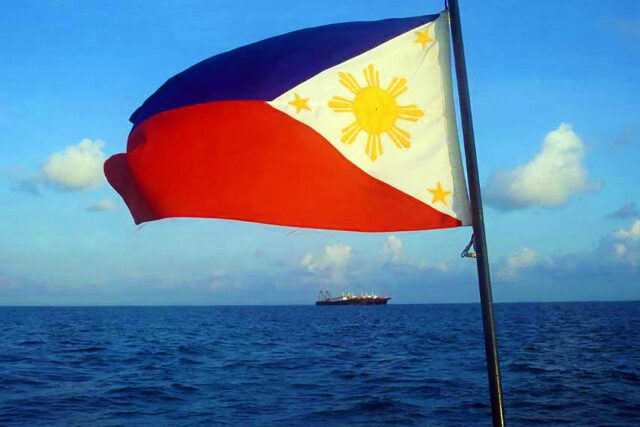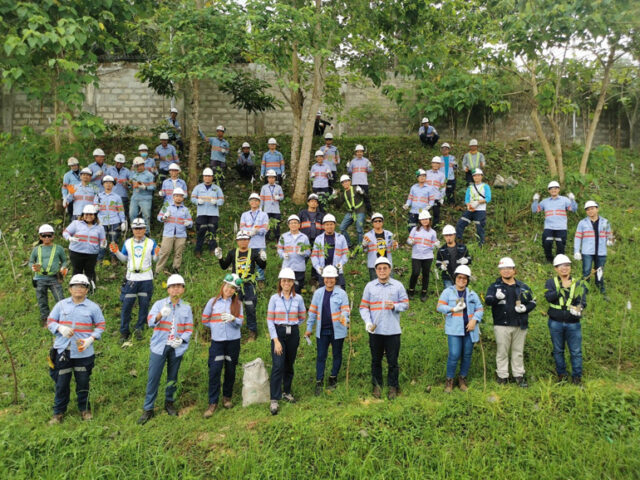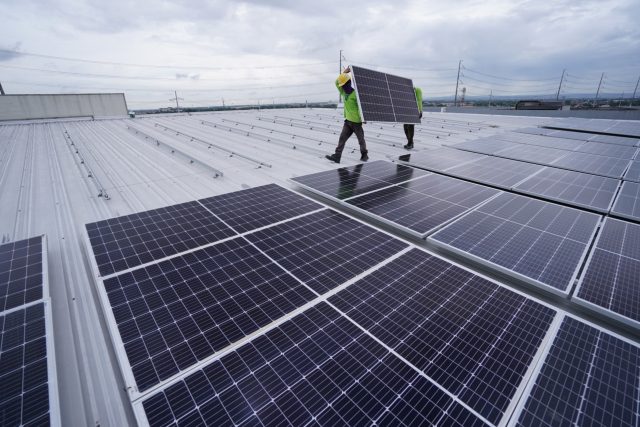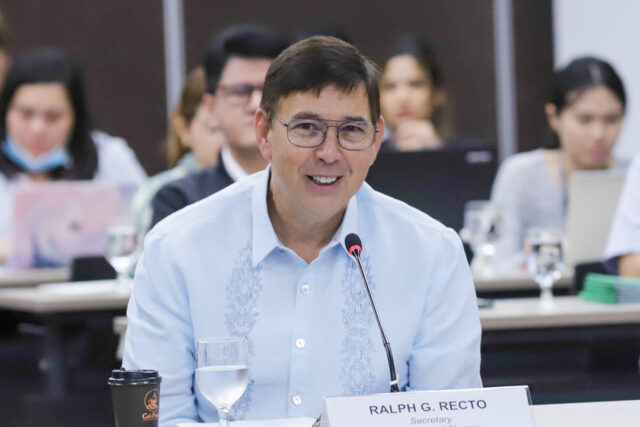AboitizPower harnesses the power of partnership to plant over 2M trees
Trees offer a multitude of benefits to our environment and well-being as they contribute to energy conservation, water preservation, and even heat absorption. They also provide sustenance and economic opportunities, while serving as habitats for wildlife.
Most importantly, trees are a natural carbon sink as they absorb more carbon than they produce — all this while releasing oxygen to our air. Consequently, trees help reduce the amount of carbon dioxide in the atmosphere and play a crucial role in sustaining life on Earth.
This Earth Month, Aboitiz Power Corporation (AboitizPower) recognizes its business units located in different parts of the country who took action in empowering year-round efforts to plant over two million trees and create carbon sinks for a healthier planet.
Along the way, significant bonds with local communities and stakeholders were also formed and strengthened, showing how camaraderie, responsibility, and a sense of communal ownership are needed to scale carbon sequestration activities and, ultimately, bring about sustainable environmental and socioeconomic changes within localities.
CARBON SINK MANAGEMENT PROGRAMS
AboitizPower subsidiaries Therma South, Inc. (TSI) and Therma Visayas, Inc. (TVI) have built carbon sinks in Davao del Sur and Toledo City, Cebu, respectively, en route to planting one million trees each within their host communities.
TSI began its Carbon Sink Management Program in 2015 and recently completed its goal of planting one million trees in Davao City, including areas covering the ancestral domains of indigenous peoples (IP).
Through a collaborative effort with Ramon Aboitiz Foundation, alongside the Matigsalug Council of Elders Marilog District Davao City, Inc. and the Matigsalug Manobo Tribal People Council of Elders Davao, Inc., TSI successfully planted a variety of endemic, fruit-bearing, and high-value trees in the Marilog District. It also resulted in restoring and rehabilitating over 845 hectares of the IP’s ancestral domain.
TSI and Ramon Aboitiz Foundation also held several technical training sessions in farm planning; nursery establishment and seedling production; site preparation and plantation establishment; and plantation maintenance and monitoring. Collaboration with the local public agriculture office will also bring more opportunities for the IPs, including upskilling in cacao production, marketing, and networking.
Meanwhile, TVI began its 10-year Carbon Sink Management Program in 2016 and, to date, has planted and nurtured 770,000 trees with the help of Ramon Aboitiz Foundation and the hard work of some 277 farmers in Cebu.
As of end-2023, the program has covered a land area of 1,084 hectares, spanning the municipalities and cities of Balamban, Toledo, Borbon, Asturias, Barili, Tuburan, Pinamungahan, Ronda, Cebu, and Dumanjug.
Under the program, partner farmers earn a livelihood from payments for their seedlings and maintenance services, as well as added income opportunities from the produce of fruit-bearing and high-value trees.
Native trees of mixed fruit and timber planted since 2017 include Narra, Lanutan, Kakaw, Coffee, Lomboy, Nangka, Guyabano, Rambutan, Lanzones, Avocado, Kunawom, Tugas/Molave, Duhat, Labana, Lemonsito/Kalamansi, Malaruhat, Sangil, Agoho del Monte, Caimito, Conalum, and Taguilomboy.
IF YOU PLANT IT, THEY WILL COME
The eight-hectare Aboitiz Cleanergy Park in Punta Dumalag, Matina Aplaya, Davao City actively promotes decarbonization in an urban area, showcasing a mangrove reforestation site, nursery, and botanical garden for the propagation of multiple native tree species. As a direct result, many species of birds — from migrants, residents, to localized endemics — consider it their home.
Following a recommendation by the University of the Philippines Mindanao and the University of Southeastern Philippines back in 2013, the park steadily propagated trees in the area through years of joint efforts from the public and private sectors, enabling an increase in the number of bird species residing there — rising from just five in 2015 to 106 in 2023.
As observed by birdists who frequent the park, more trees meant more food and shelter that accommodated the influx of more bird species. This growth was further sustained by habitat conservation activities and proper biodiversity management which made it a safer reserve for the birds, especially as too few people move around it. The site is jointly managed by AboitizPower subsidiary Davao Light and Aboitiz Foundation, Inc.
MANGROVE PROTECTION AND RESTORATION
Meanwhile, in Bataan, GNPower Mariveles Energy Center Ltd. Co. (GMEC) continued its five-year mangrove adoption and protection project for the province through a series of activities, including a two-day workshop and a planting activity.
Last year, GMEC signed a memorandum of agreement for an estimated P6.8-million “5 Hectares Orani Mangrove Adoption and Protection Project” to improve the existing conditions of the mangrove areas in the allotted five hectares for a period of five years, which is subject for a possible extension.
A recent workshop spearheaded by GMEC and conducted by the Wetlands International Philippines had 46 attendees from the Provincial Government of Bataan, various relevant local government offices, and community partner Tubo-Tubo Fisherfolks Association learn the ins and outs of mangrove protection and restoration.
A few days after the workshop, 1,000 mangrove saplings were planted by 35 volunteers from the Tubo-Tubo Fisherfolks Association in GMEC’s five-hectare adopted area in Tubo-Tubo, Sitio Pulo, Barangay Kabalutan, Orani, Bataan.
Together with the Provincial Government of Bataan, the Municipality of Orani, the Department of Environment and Natural Resources, and the Tubo-Tubo Fisherfolks Association, the project will help advance GMEC’s flagship environmental program called P.R.O.G.R.E.S.S., with focus on the letters “P” and “R” which stand for “Protect marine life” and “Reforest land,” respectively.
For AboitizPower and its partners and neighbors, commemorating Earth Month is about working together for the year-round practice of its core message — ultimately leaving the planet better than when we found it.
Spotlight is BusinessWorld’s sponsored section that allows advertisers to amplify their brand and connect with BusinessWorld’s audience by publishing their stories on the BusinessWorld Web site. For more information, send an email to online@bworldonline.com.
Join us on Viber at https://bit.ly/3hv6bLA to get more updates and subscribe to BusinessWorld’s titles and get exclusive content through www.bworld-x.com.
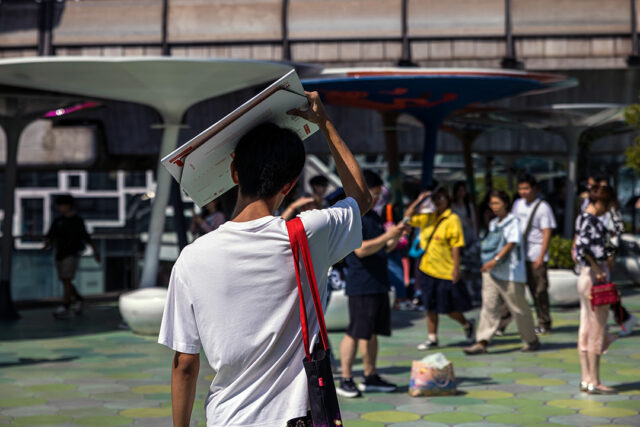




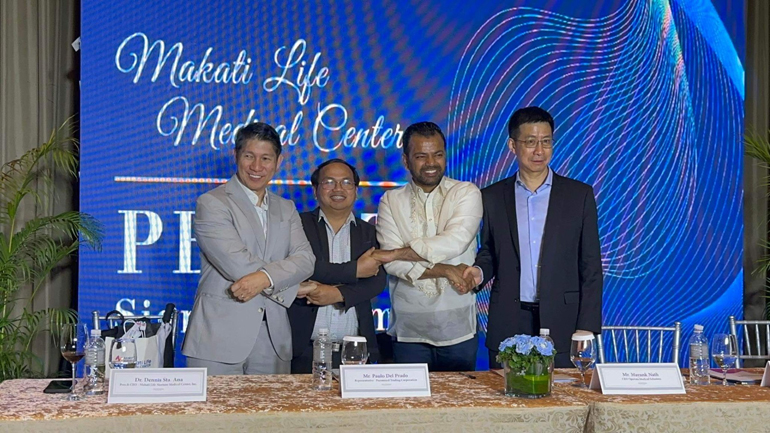 “The uMI 550 features a unique Integrated Light Guide Digital PET detector, achieving both high resolution and high sensitivity,” said United Imaging CEO Dr. Ju Song Xia, who flew to Manila for the significant partnership rite. “The technical and medical features make it a powerful tool for oncology, cardiology, and neurology scanning.”
“The uMI 550 features a unique Integrated Light Guide Digital PET detector, achieving both high resolution and high sensitivity,” said United Imaging CEO Dr. Ju Song Xia, who flew to Manila for the significant partnership rite. “The technical and medical features make it a powerful tool for oncology, cardiology, and neurology scanning.”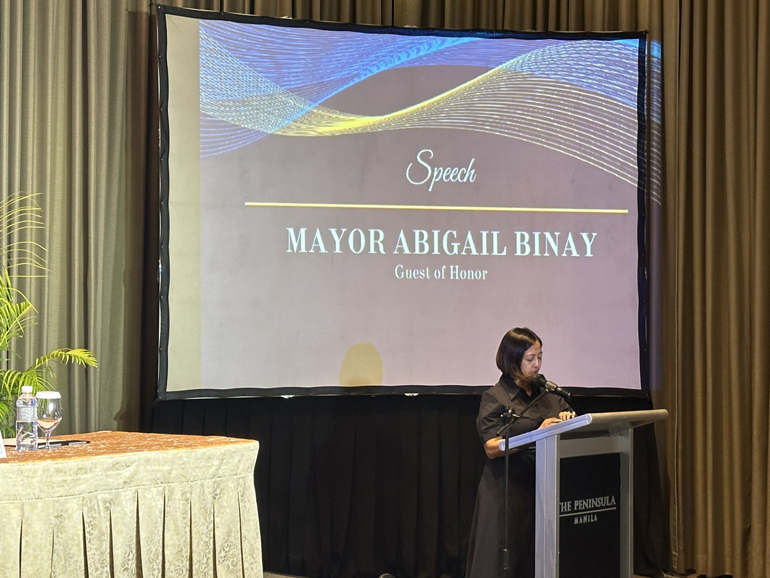 Makati City Mayor Abigail Binay was a witness to the signing of the agreement, which was attributed to her significant vision to make the city a leader in Preventive, Therapeutic, and Rehabilitative (PTR) Medicine. Dr. Sta. Ana said Makati Life Medical Center aligns with the city’s goals to bring a comprehensive healthcare system for
Makati City Mayor Abigail Binay was a witness to the signing of the agreement, which was attributed to her significant vision to make the city a leader in Preventive, Therapeutic, and Rehabilitative (PTR) Medicine. Dr. Sta. Ana said Makati Life Medical Center aligns with the city’s goals to bring a comprehensive healthcare system for 

